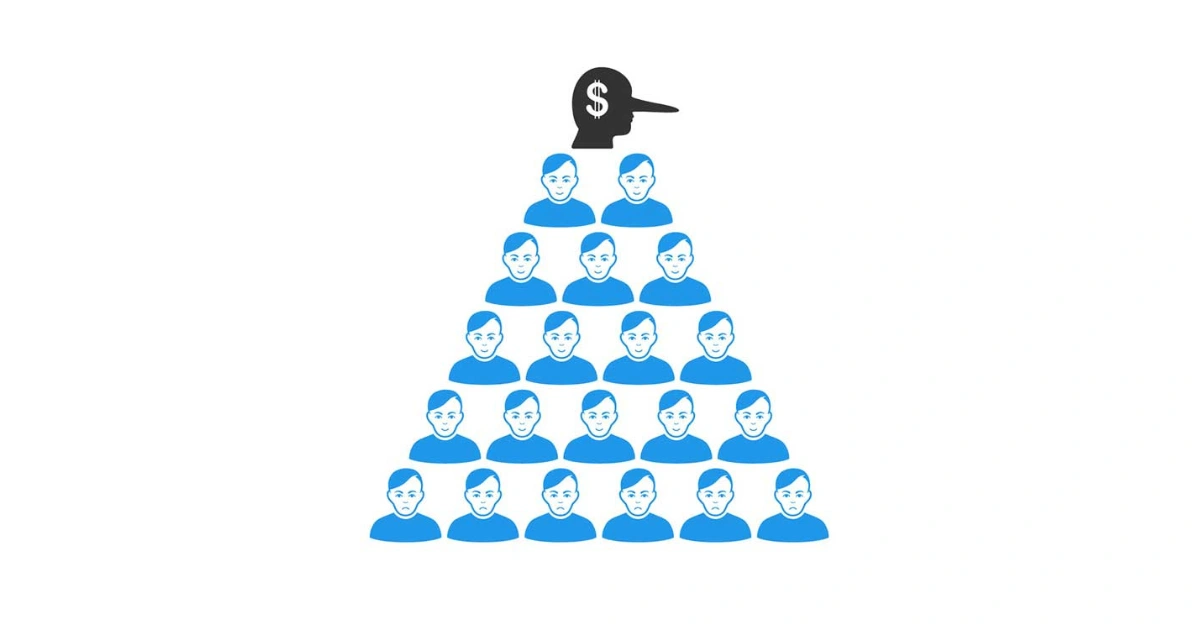The world of digital publishing and author marketing is exploding with new platforms claiming to “transform your book into a bestseller.” Among these is Limelight Media, a company that has caught the attention of many aspiring writers—but for all the wrong reasons.
While their pitches may sound promising, an increasing number of users are questioning whether Limelight Media is a pyramid scheme dressed up as a legitimate publishing or promotional service.
In this blog post, we’ll expose seven red-flag behaviors that suggest Limelight Media may be operating under a multi-level marketing (MLM) or pyramid-like business model—one that preys on authors’ dreams rather than promoting their success.
High Upfront Costs With Vague Deliverables
One of the first warning signs is how quickly Limelight Media asks for money. Many authors report being contacted out of the blue and offered “exclusive publishing or media deals,” only to be pressured into paying thousands upfront for vague services.
-
Services are poorly defined (e.g., “high-level exposure,” “top-tier marketing”).
-
No measurable deliverables or campaign guarantees.
-
No transparent portfolio or verified client success stories.
In legitimate marketing or publishing, investment follows proven results—not the other way around.
Aggressive Cold Calling & Hard-Selling Tactics
Another hallmark of pyramid schemes is persistent, unsolicited outreach. Limelight Media has been accused of cold-calling authors, using emotional manipulation and urgency to close the deal.
-
“Limited time offer” tactics to push immediate decisions.
-
Claims that your book has been “specially selected” or is “reviewed by top editors.”
-
Pushback when authors ask for references, documentation, or contracts.
In ethical business dealings, clients come voluntarily after seeing value—not because they were talked into it on the phone.
No Focus on Reader Value—Only Recruitment or Reselling
Pyramid-style operations often prioritize bringing in more paying clients rather than delivering actual results. Many who’ve worked with Limelight Media claim that the company encourages them to refer other authors or upsell additional services before their first order has even been fulfilled.
This is a classic MLM tactic: shifting focus from delivering product value to generating revenue via more recruits.
Lack of Verified Results or Transparent Case Studies
Have you tried to look up past clients or proven marketing results? You’ll likely hit a wall. Limelight Media lacks credible testimonials, verifiable case studies, or any proof of ROI (return on investment) for the average user.
A few red flags include:
-
Reviews only on obscure or unverified sites.
-
No traceable authors whose careers have been elevated.
-
Inability to deliver consistent audience engagement or book sales.
Real marketing agencies have a track record—pyramid schemes have promises.
Overuse of Buzzwords & Vague Jargon
Language matters. A legitimate service provider explains their offerings in clear, measurable terms. Limelight Media, on the other hand, uses fluffy marketing speak to obscure what they’re actually doing.
Examples include:
-
“We’ll get your book in front of millions.”
-
“You’ll be featured on major news sites.”
-
“You’re being scouted for a documentary.”
These phrases lack specifics, and in most cases, the promises don’t materialize or lead to sales or visibility.
Confusing Company Structure or Affiliations
Is Limelight Media part of a larger network of marketing companies? Some users have found similar scripts and sales funnels used by entities with different names—suggesting Limelight might be a rebranded operation or affiliate in a larger funnel-based scam.
Look out for:
-
Multiple names listed in contracts or invoices.
-
Website links redirecting to unrelated domains.
-
Poor BBB (Better Business Bureau) ratings or unresolved complaints.
These are signs of a business that doesn’t want to be held accountable.
Exploiting Author Psychology and Aspirations
Perhaps the most unethical sign of all is how Limelight Media appears to manipulate authors’ dreams. Many aspiring writers are promised stardom, bestseller status, and mass exposure—but only if they invest more money.
-
Emotional sales language targeting insecurity and ambition.
-
No practical education about the publishing industry.
-
Zero support for long-term brand-building or reader engagement.
This mirrors the psychological manipulation techniques used by pyramid schemes, where hope is the product—not a service.
Conclusion: Protect Your Career From False Promises
While Limelight Media may not outright call itself a pyramid scheme, its behavior mimics many MLM-style tactics—unrealistic promises, unclear deliverables, and a focus on payments over results. Writers deserve real growth, transparency, and ethical support, not sales pitches disguised as success stories.
Always do your due diligence before trusting your work—and your wallet—to any publisher or media company.
FAQs About Limelight Media and Pyramid Schemes
Q1: Is Limelight Media legally a pyramid scheme?
Not officially. However, its structure and sales methods reflect many red flags commonly found in MLM or pyramid-style operations.
Q2: How can I verify if a publishing company is legitimate?
Look for:
-
Transparent service breakdowns
-
Verifiable author case studies
-
BBB accreditation and Google reviews
-
Clear contracts and refund policies
Q3: What should I do if I’ve already paid Limelight Media?
Document all communication, request a refund in writing, and consider filing a report with:
-
FTC (Federal Trade Commission)
-
Better Business Bureau (BBB)
-
Your state’s consumer protection agency
Q4: What are safe alternatives to promote my book?
Consider:
-
Working with reputable self-publishing platforms (e.g., Amazon KDP, IngramSpark)
-
Hiring a book marketing consultant with proven client testimonials
-
Using platforms like BookBub or Goodreads for organic reach
Q5: Why do scams like this keep targeting authors?
Because authors are passionate dreamers, often unfamiliar with the business side of publishing. This vulnerability makes them prime targets for high-pressure sales tactics and false hope.
